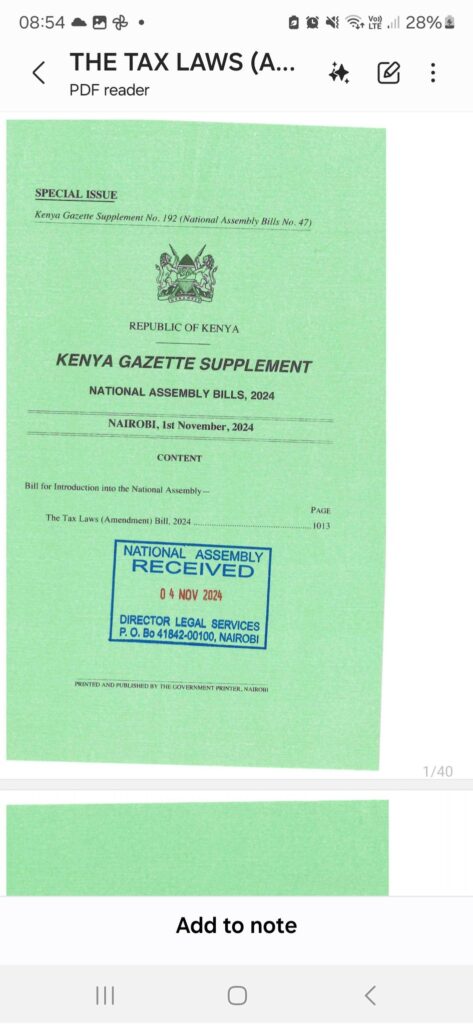A struggling importer of tiles, ceramic sinks, and similar products in Kenya has been accused of unethical practices in its efforts to manipulate tax policies.
The company, reportedly facing dwindling profits due to competition, devised a strategy to influence parliament to impose higher taxes on rival imports.
The goal is to cripple competitors and increase its margins, showing blatant disregard for fair business practices.
To achieve this, the importer compiled a list of competing dealers and sent them letters asking for financial contributions.
These funds, they claimed, would be used to “lobby” parliamentarians to push for tax changes favoring their business.
However, “lobbying” in this context appears to be a thinly veiled cover for outright bribery. Sources indicate that the company has raised a portion of a planned Kshs 300 million war chest intended to bribe lawmakers.

This exposes a darker side of Kenya’s tax policymaking.
It is alleged that the importer identified parliament as the most effective avenue to enforce its plans, leveraging money and influence to alter national tax policies.
Such actions reveal a system where powerful individuals and companies can manipulate laws for personal gain while ordinary citizens bear the brunt of these decisions.
The allegations against the importer also highlight systemic flaws in Kenya’s governance and regulatory oversight.
Tax policy should serve the public interest, but these accusations suggest that some policies are crafted to benefit a few wealthy businessmen.
Similar trends have been seen in other tax proposals, such as controversial changes in the 2024 Finance Bill, which drew public outcry for favoring corporate interests at the expense of the majority.
This importer’s actions not only distort market dynamics but also contribute to public mistrust in government institutions.
By exploiting lawmakers, the company demonstrates how corruption continues to undermine Kenya’s economy.
The situation also reflects poorly on parliament, raising questions about its integrity and susceptibility to financial influence.
For Kenyans, these revelations are a call to demand more transparency and accountability in tax policy development.
This importer’s conduct tarnishes its reputation and highlights the urgent need for reforms to protect the public from similar schemes.


